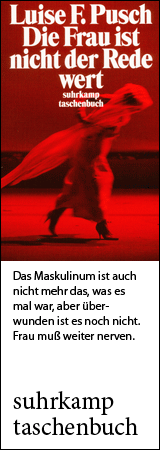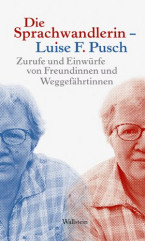
(Olga Havlová (née Splichalová))
born on July 11, 1933 in Prague
died on January 27, 1996 in Prague
Czech dissident, activist and First Lady of Czechoslovakia (1989-1992) and the Czech Republic (1993-1996)
90th birthday on July 11, 2023
Biography • Literature & Sources
Biography
It took half a day for us to arrange to meet. You a daughter of Zizkov, me, as yet an inexperienced visitor to writers’ cafés. The two of us, sometime on the edge of Spring.
In a long poem to her, Václav Havel recalls this first meeting with Olga Splichalová. It was in 1956 and at Café Slavia in Prague, where the couple would continue to meet up frequently. Havel had graduated from high school in 1954 and was studying economics at the Technical University in Prague. As a descendent of a bourgeois family, he soon faced restrictions placed by the communist regime on his educational opportunities. Olga Splichalová’s working-class background was different; she grew up ‘on the streets’, she said, in the Zizkóv district of Prague. Later she had to care for her sister's children. She was beautiful and elegant; she wanted to become an actress. After various odd jobs, she worked as an usher from 1961 to 1969 at the Prague theater where Havel was working his way up to playwright after starting as a stagehand in 1960.
The couple were married in 1964. As a dissident, Havel was soon politically persecuted, and with him Olga, whose own radical activism more than matched his. She was not ‘the woman by his side’ but an equal partner in the struggle.
A ban on the publication of his works in Czechoslovakia was placed on the playwright starting in 1969. In 1972, the couple was involved in the founding of an underground newspaper, and Havel became editor until 1977. She took over in 1979 when Havel was imprisoned for three years for “anti-socialist activities.” An editorial she wrote that closed with the words “in the year ... written for herself and her friends by Olga Havlová” then put her in the firing line as well. Havel wrote Letters to Olga from prison; she was the only person who was allowed contact with him, who encouraged him, and who provided him with political news and information. Both signatories of Charter 77 were placed under government surveillance in 1977, and starting in 1978 they were virtually under house arrest. This did not lessen their resolve to fight for civil liberties and human rights.
Perestroika led to a change in the political situation, and on July 5, 1990, Havel was elected president of the Czech and Slovak Federative Republic. In the same year, Olga established a foundation to help Czechoslovaks with physical and mental disabilities. Havel was re-elected in 1993, but by then the First Lady, so admired by the Czech people and worshipped like a saint, had already fallen ill. She died of cancer in 1996.
(Text from 2002; translated with DeepL.com, edited by Ramona Fararo, 2023)
Author: Susanne Gretter
Literature & Sources
Havel, Václav. 1995. Briefe an Olga: Betrachtungen aus dem Gefängnis. Reinbek bei Hamburg. Rowohlt.
Markova, Marta. 1996. Olga Havlova oder Über die Würde der Frauen: Neun Porträts tschechischer Frauen. Innsbruck. Edition Löwenzahn.
If you hold the rights to one or more of the images on this page and object to its/their appearance here, please contact Fembio.



